- Gadsden State Community College is a public, open-door, comprehensive community college dedicated to meeting the changing needs of citizens in its service area. It offers the first two years of a four-year degree, a number of technical and certificate programs, and non-credit programs that include continuing education, skills training, and adult education.
School Highlights
Gadsden State Community College serves 5,878 students (42% of students are full-time).
The college's student:teacher ratio of 14:1 is lower than the state community college average of 20:1.
Minority enrollment is 32% of the student body (majority Black), which is less than the state average of 43%.
Quick Stats (2025)
- Enrollment: 5,878 students
- In-state tuition: $3,168
- Out-state tuition: $5,880
- Student:teacher ratio: 14:1
- Minority enrollment: 32%
- Source: Integrated Postsecondary Education Data System (IPEDS)
Top Rankings
Gadsden State Community College ranks among the top 20% of public schools in Alabama for:
Category
Attribute
Affordability
School Overview
The teacher population of 424 teachers has stayed relatively flat over five years.
Gadsden State Community College
(AL) Community College Avg.
Carnegie Classification
Associate's Colleges: High Career & Technical-High Traditional
Associate's Colleges: Mixed Transfer/Career & Technical-High Traditional
Institution Level
At least 2 but less than 4 years
At least 2 but less than 4 years
Institution Control
Public
Public
Total Faculty
424 staff
153 staff
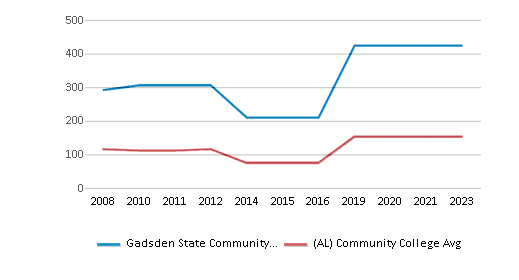
School Calendar
Student Body
The student population of Gadsden State Community College has grown by 27% over five years.
The student:teacher ratio of 14:1 has increased from 9:1 over five years.
The Gadsden State Community College diversity score of 0.50 is less than the state average of 0.60. The school's diversity has stayed relatively flat over five years.
Total Enrollment
5,878 students
2,464 students
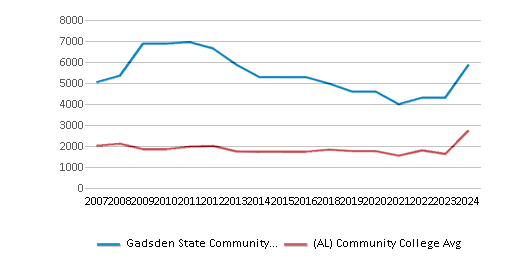
Student : Teacher Ratio
14:1
20:1
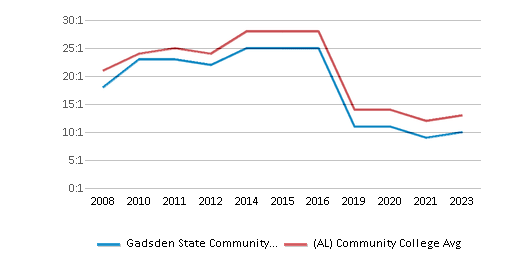
# Full-Time Students
2,458 students
873 students
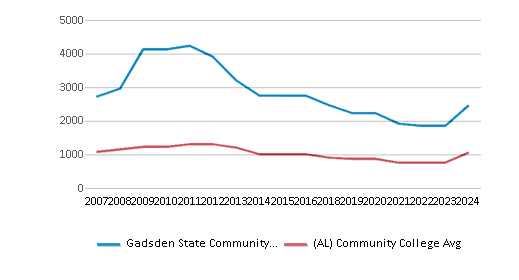
# Part-Time Students
3,420 students
1,855 students
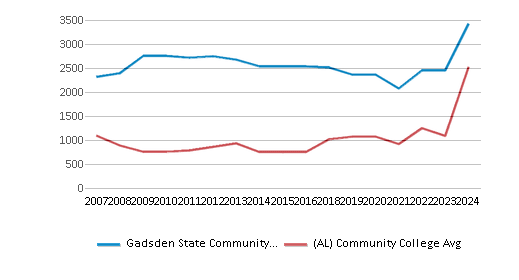
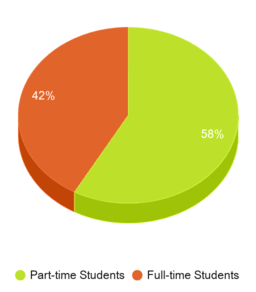
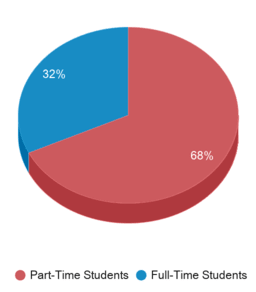
# Enrollment Undergraduate
587 students
422 students
# Full-Time Undergraduate Students
2,458 students
873 students
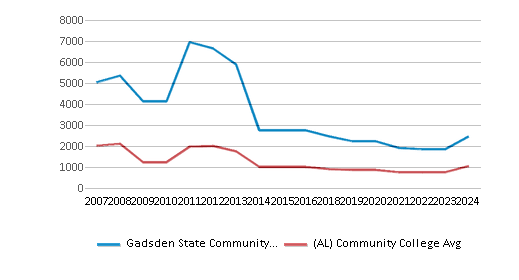
# Full-Time Graduate Students
n/a
11 students
# Part-Time Undergraduate Students
3,420 students
2,077 students
# Part-Time Graduate Students
n/a
30 students
Total Dormitory Capacity
110 students
168 students
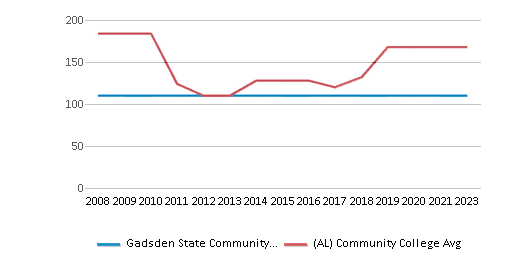
% American Indian/Alaskan
n/a
n/a
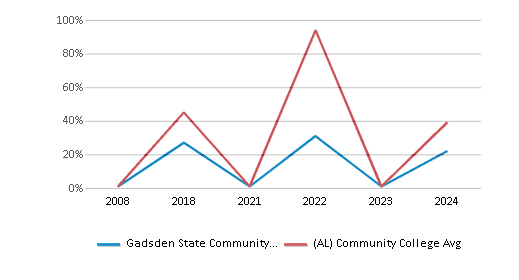
% Asian
1%
2%
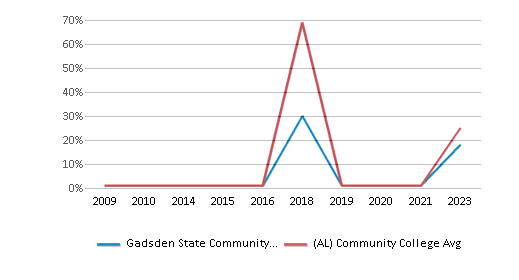
% Hispanic
6%
6%
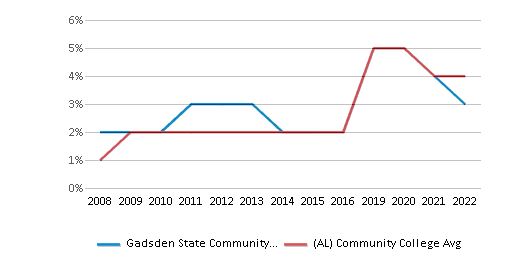
% Black
18%
27%
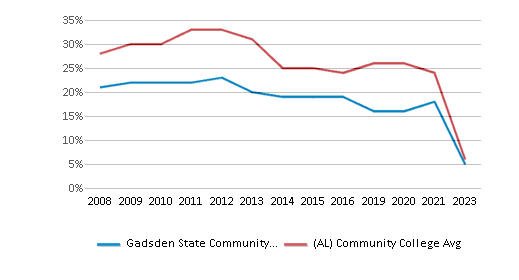
% White
68%
57%
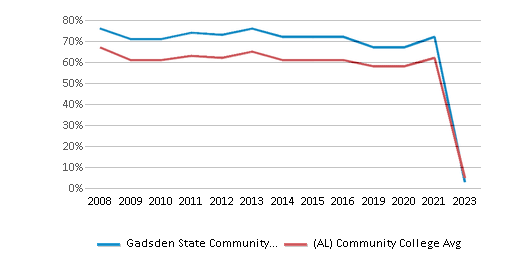
% Hawaiian
n/a
n/a
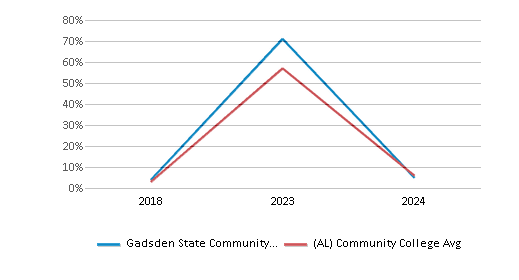
% Two or more races
4%
4%
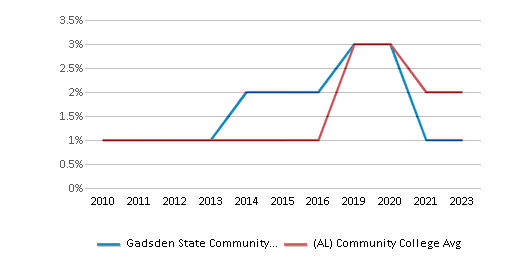
% Non Resident races
1%
1%
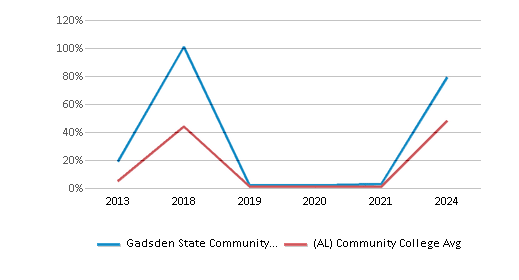
% Unknown races
n/a
3%
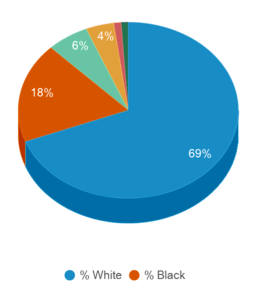
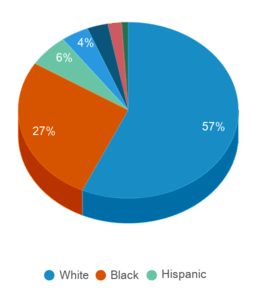
Diversity Score
0.50
0.60
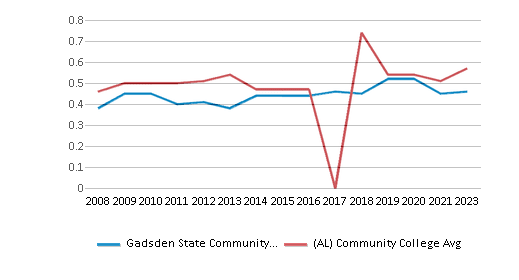
College Completion Rate (Students who graduate in less than 4 years)
0.2512%
0.2683%
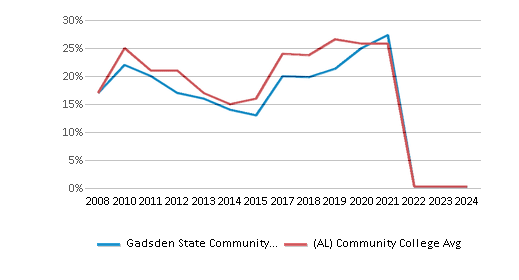
College Completion Rate (Students who graduate in 4 years or more than 4 years)
n/a
0.3%
Average Graduate Earnings (10 Years)
$29,200
$29,700
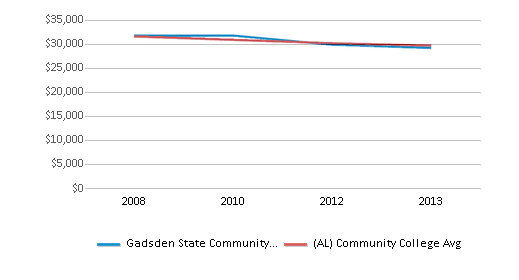
Tuition and Acceptance Rate
The public in-state tuition of $3,168 is less than the state average of $4,077. The in-state tuition has declined by 19% over four years.
The public out-state tuition of $5,880 is less than the state average of $7,206. The out-state tuition has declined by 17% over four years.
In-State Tuition Fees
$3,168
$4,077
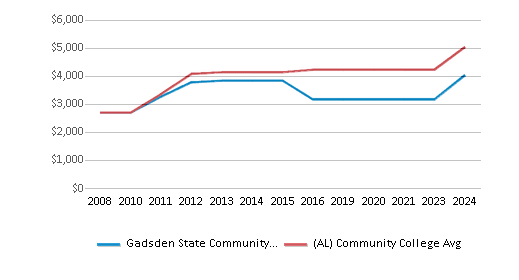
Out-State Tuition Fees
$5,880
$7,206
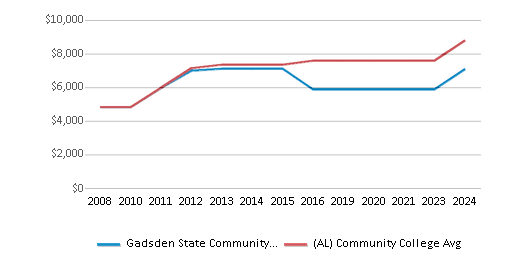
% Students Receiving Some Financial Aid
81%
90%
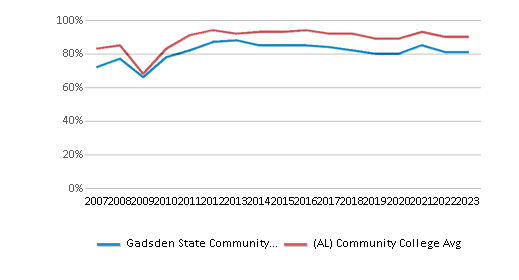
Median Debt for Graduates
n/a
$10,500
Median Debt for Dropouts
n/a
$5,500
Acceptance Rate
n/a
81%
SAT Reading
n/a
530
SAT Math
n/a
545
ACT Composite
n/a
23
ACT English
n/a
21
ACT Math
n/a
22
Source: 2024 (or latest year available) Integrated Postsecondary Education Data System (IPEDS)
School Notes
- GSCC consists of the following campuses, centers, and instructional sites in Alabama: Wallace Drive, East Broad, and Valley Street campuses (Gadsden) and Ayers Campus (Anniston); McClellan Center; and Piedmont High School, Pell City High School, Cherokee County, Cleburne County, and St Clair Correctional Facility (IEP) instructional sites. By offering a broad spectrum of programs, GSCC provides all its students with opportunities for education, personal, and professional advancement. A wide range of academic courses prepares students to transfer successfully to four-year institutions. Technical programs equip students to master certain skills, as well as to utilize them through job entry. The College provides a wide range of support services that enable students to function in a collegiate environment and to make decisions appropriate to both their personal and their educational goals. The College has committed itself to becoming an integral part of the lives of those communities that it serves. Continued cooperation with civic, business, and industrial leaders strengthens the ties between the College and these communities. GSCC is pledged to offering quality education in both academic and technical fields to all citizens within its service area. Always receptive to the specific needs of individuals, groups, businesses, and industries, GSCC provides, through specialize courses and training, the knowledge and the techniques necessary for success in several occupational fields. In addition, classroom and on-site experiences further develop students' understanding not only of their immediate environment but also of the larger world around them. The College fosters a spirit of internationalism through cultural exchanges within the communities served.
Frequently Asked Questions
How much does Gadsden State Community College cost?
Gadsden State Community College's tuition is approximately $3,168 for In-State students and $5,880 for Out-State students.
What is Gadsden State Community College's ranking?
Gadsden State Community College ranks among the top 20% of community college in Alabama for: Least expensive tuition.
Recent Articles

Obtaining Your Bachelor's Degree at a Community College
Explore the evolving landscape of community colleges offering bachelor's degrees, addressing affordability, accessibility, and workforce needs.

A to Z of Community College Certificates and Courses
From business and healthcare to technology and skilled trades, the article showcases the breadth of options available to students seeking to enhance their knowledge, develop new skills, or pursue career advancement.

What is a Community College?
This comprehensive guide explains what a community college is, its history, and its role in higher education. It covers the types of programs offered, differences from four-year colleges, benefits of attending, and important considerations for prospective students, providing valuable insights for those exploring educational options.










